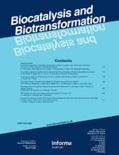
BIOCATALYSIS AND BIOTRANSFORMATION
metrics 2024
Advancing Sustainable Solutions Through Innovative Research
Introduction
BIOCATALYSIS AND BIOTRANSFORMATION is a distinguished academic journal published by Taylor & Francis Ltd that focuses on the rapidly evolving fields of biochemistry and biotechnology. Established in 1987, the journal features cutting-edge research that explores the mechanisms and applications of biocatalysis and biotransformation processes, making it a crucial resource for researchers, professionals, and students alike. With an impressive commitment to advancing scientific knowledge, it is currently classified in the Q3 quartile in both the Biochemistry and Biotechnology categories, and Q4 in Catalysis for 2023, underscoring its impact and relevance in the field. The journal is accessible to a global audience, although it operates under a subscription model. Located in the United Kingdom, BIOCATALYSIS AND BIOTRANSFORMATION has contributed significantly to the discourse on innovative methodologies and their applications in various industries, addressing key challenges in sustainable development and environmental safeguarding. By publishing high-quality research, this journal remains a beacon for those probing the intersections of chemistry and biology in catalysis.
Metrics 2024
 0.35
0.35 1.40
1.40 1.80
1.80 52
52Metrics History
Rank 2024
Scopus
IF (Web Of Science)
JCI (Web Of Science)
Quartile History
Similar Journals
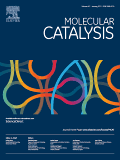
Molecular Catalysis
Unlocking the Potential of Catalysis for TomorrowMolecular Catalysis, published by Elsevier in Netherlands, is a premier academic journal that explores the cutting-edge domain of catalytic science. With an impressive impact factor and classified in the top quartiles (Q2) in various fields such as Catalysis, Physical and Theoretical Chemistry, and Process Chemistry and Technology, this journal stands as a significant resource for researchers and professionals committed to advancing the understanding of catalysis processes. Since its inception in 2017, it has been pivotal in publishing high-quality, peer-reviewed research that addresses crucial challenges and innovations in molecular catalysis. The journal is fully Open Access, allowing unrestricted access to its articles, thus fostering a wider dissemination of knowledge. Recognized for its rigorous editorial standards, it features works that push the boundaries of current scientific understanding, making it an essential platform for students and academics alike to share and grow in their expertise.

Synthetic and Systems Biotechnology
Exploring the Synergy of Biology and TechnologySynthetic and Systems Biotechnology, published by KEAI PUBLISHING LTD, is a pioneering open-access journal that has made significant contributions to the fields of applied microbiology, biotechnology, biomedical engineering, genetics, and structural biology since its inception in 2016. With an ISSN of 2405-805X, this journal is committed to fostering innovative research and interdisciplinary collaboration, providing a platform for the dissemination of high-quality studies that push the boundaries of scientific knowledge. Recognized for its excellence, it holds prestigious Q1 rankings in both Applied Microbiology and Biotechnology as well as Biomedical Engineering in 2023, alongside notable Q2 rankings in Genetics and Structural Biology. Researchers, professionals, and students alike can access cutting-edge research that explores the dynamic interplay between synthetic biology and systems biology, driving advancements that could reshape health, industry, and environmental sustainability. By operating under an open-access model, Synthetic and Systems Biotechnology ensures that new findings are accessible to a global audience, thereby maximizing the impact and reach of the published work and paving the way for future discoveries.

AIMS Bioengineering
Exploring the Intersection of Biology and EngineeringAIMS Bioengineering, published by the American Institute of Mathematical Sciences (AIMS), is an esteemed open-access journal dedicated to advancing knowledge in the interdisciplinary field of bioengineering. With the ISSN 2375-1495, this journal has been providing a platform for the rapid dissemination of high-quality research since its establishment in 2014. AIMS Bioengineering covers a wide range of topics, including but not limited to, biomaterials, computational biology, and bioinformatics, making it an essential resource for researchers, professionals, and students alike. Although the H-index and specific category quartiles are not currently available, the journal's commitment to open access ensures that cutting-edge findings are accessible to a global audience, fostering collaboration and innovation in bioengineering. With its rigorous peer-review process and dedication to scholarly excellence, AIMS Bioengineering continues to play a pivotal role in shaping the future of the bioengineering landscape.
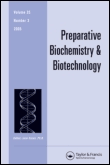
PREPARATIVE BIOCHEMISTRY & BIOTECHNOLOGY
Exploring the intersection of biochemistry and medical breakthroughs.PREPARATIVE BIOCHEMISTRY & BIOTECHNOLOGY, published by Taylor & Francis Inc, serves as a vital platform for advancing research in the fields of biochemistry, biotechnology, and related areas of medicine. With an ISSN of 1082-6068 and an E-ISSN of 1532-2297, this journal has established itself with a notable Q3 ranking in the 2023 categories of Biochemistry, Biotechnology, and Miscellaneous Medicine, reflecting its relevance and contribution to these disciplines. The journal encompasses a wide range of topics, providing crucial insights into preparative methods, innovative biotechnological applications, and their implications for various medical advancements. Although not open access, the journal's rich content is crucial for researchers and professionals aiming to stay abreast of the latest developments and methodologies in biochemistry and biotechnology. With an enduring commitment to excellence since its inception in 1996, the journal remains an essential resource for academics and practitioners dedicated to advancing scientific knowledge and practical applications.
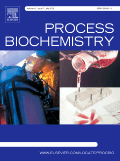
PROCESS BIOCHEMISTRY
Bridging academia and industry through impactful research.PROCESS BIOCHEMISTRY is a premier journal published by Elsevier Science Ltd, dedicated to advancing the field of biochemistry, microbiology, and bioengineering. With an ISSN of 1359-5113 and an E-ISSN of 1873-3298, this renowned journal is recognized for its impactful contributions, as demonstrated by its Q2 ranking in Applied Microbiology and Biotechnology, Biochemistry, and Bioengineering categories as of 2023. Covering a wide array of topics since its inception in 1950, PROCESS BIOCHEMISTRY serves as a crucial platform for researchers and professionals to disseminate innovative findings and develop new insights in enzyme technology, metabolic pathways, and bioreactor design. Although the journal operates under a non-open access policy, it remains vital for those engaged in cutting-edge biochemical research and development. Located in the United Kingdom, it continues to facilitate scientific discourse and foster collaboration among industry experts and academic scholars worldwide.
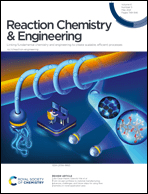
Reaction Chemistry & Engineering
Unlocking Potential in Reaction Chemistry & EngineeringReaction Chemistry & Engineering is an esteemed journal published by the Royal Society of Chemistry, dedicated to advancing the field of chemical engineering. With a focus on pivotal topics including catalysis, process technology, and fluid flow, this journal serves as a critical platform for researchers and professionals seeking to disseminate innovative findings and methodologies. As of 2023, it boasts impressive impact factors, ranking Q2 in Catalysis and consistently appearing in the Q1 categories for several related fields, thus recognizing its influence and relevance in the scientific community. With Scopus rankings placing it among the top 30 journals in multiple chemical engineering categories, Reaction Chemistry & Engineering encourages open dialogue and collaboration among scientists aiming to overcome contemporary challenges in chemical processes. This journal is vital for anyone involved in the development and application of chemical engineering, providing essential insights and fostering progress in this dynamic discipline. Explore the latest research and contribute to future innovations by engaging with the cutting-edge work presented in Reaction Chemistry & Engineering.
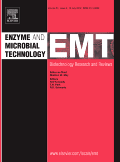
ENZYME AND MICROBIAL TECHNOLOGY
Unleashing the Power of Enzymes and MicroorganismsENZYME AND MICROBIAL TECHNOLOGY, a premier journal published by Elsevier Science Inc, serves as a pivotal platform for researchers and professionals dedicated to exploring the dynamic intersections of microbiology, biochemistry, and bioengineering. With a rich publication history dating back to 1979 and converging until 2024, this journal has established itself within the Q2 quartile rankings across multiple categories, including Applied Microbiology and Biotechnology, Biochemistry, Bioengineering, and Biotechnology, highlighting its influential role in advancing scientific discourse. It holds impressive Scopus rankings, where it is recognized in the 79th percentile for Applied Microbiology and Biotechnology and ranks favorably in related fields, making it a valuable resource for academic and industrial researchers looking to stay abreast of the latest developments. Although it does not currently offer Open Access options, ENZYME AND MICROBIAL TECHNOLOGY remains an essential read for anyone invested in the biotechnological applications of enzymes and microorganisms.

Biocatalysis and Agricultural Biotechnology
Advancing Sustainable Solutions in AgricultureBiocatalysis and Agricultural Biotechnology, published by Elsevier, is a distinguished journal in the fields of agronomy, biotechnology, and applied microbiology. With an E-ISSN of 1878-8181, this journal has an impressive impact factor and consistently ranks in the top quadrants of Scopus, notably Q1 in Agronomy and Crop Science and Q2 in several related categories. Since its inception in 2012, it aims to bridge the gap between biocatalysis applications and agricultural practices, fostering innovative research that advances sustainable agriculture and biotechnological applications. The journal is highly regarded, with a Scopus rank of #47 out of 406 in Agronomy and Crop Science, exemplifying its significance in the academic community. As an essential resource for researchers, professionals, and students, it provides a platform for sharing cutting-edge findings that address crucial global challenges in food security, environmental sustainability, and biotechnological advancements. Located in Amsterdam, Netherlands, the journal continues to contribute to the growth and interdisciplinary dialogue in agricultural and biological sciences.
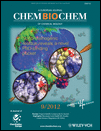
CHEMBIOCHEM
Fostering innovation in molecular science.CHEMBIOCHEM is a premier interdisciplinary journal published by WILEY-V C H VERLAG GMBH, dedicated to advancing knowledge in the fields of Biochemistry, Molecular Biology, Molecular Medicine, and Organic Chemistry. With an impactful presence since its inception in 2000 and a convergence through to 2024, the journal has established itself as a vital resource for researchers, professionals, and students alike, evidenced by its notable quartile rankings in 2023—Q2 in Biochemistry, Molecular Biology, and Molecular Medicine, and Q1 in Organic Chemistry. While it does not currently offer Open Access options, CHEMBIOCHEM remains a respected platform for disseminating high-quality research, reflected in its Scopus rankings, where it holds a credible position in various chemistry categories. By fostering innovative studies and discussions, CHEMBIOCHEM aims to contribute to the understanding and advancement of biochemical and molecular principles critical to contemporary science and healthcare.

Microbial Cell Factories
Driving Excellence in Microbial Biotechnology ResearchMicrobial Cell Factories is a premier peer-reviewed journal dedicated to the field of applied microbiology and biotechnology, published by BMC in the United Kingdom since 2002. With an impressive impact factor, this journal has consistently ranked within the Q1 category across multiple disciplines, including Applied Microbiology, Bioengineering, and Biotechnology, showcasing its significance in the scientific community. The journal’s commitment to open access ensures that innovative research is freely available to researchers, professionals, and students worldwide, fostering collaboration and knowledge dissemination. With a strong presence in Scopus rankings, Microbial Cell Factories is recognized for its contributions to advancing the understanding and application of microbial processes in production systems, making it an essential resource for those involved in the microbiological and biotechnological fields.